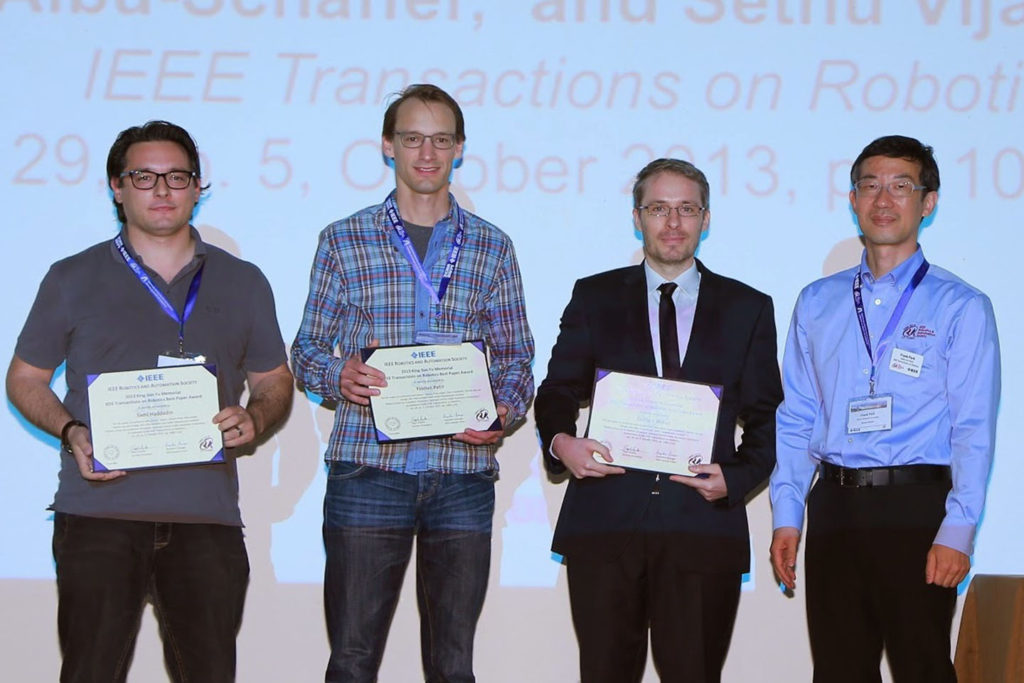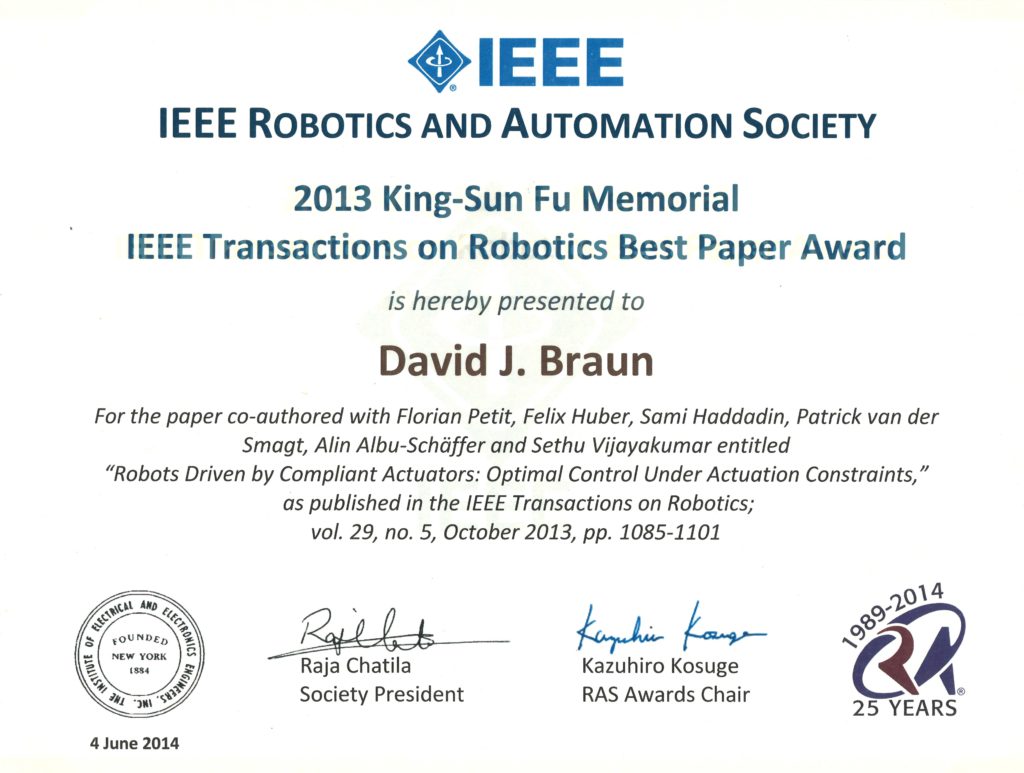Optimal Control for Compliant Robots
Compliant actuation, inspired by biological systems, offers robots mechanical adaptability and energy efficiency, making them suitable for tasks requiring both precision and power. However, controlling robots with compliant actuators is inherently challenging due to the complexity of their dynamics. My research tackled this problem by developing a constrained optimal variable impedance control framework to enable efficient and adaptive robot motion.
Key Contributions to Robotics
- Optimal Variable Impedance Control Framework:
This framework optimizes robot performance under actuation constraints, balancing precision, energy efficiency, and adaptability. It provides a structured approach for achieving dynamic tasks with compliant actuators. - Dynamic Motion Demonstration:
The framework was applied to the DLR David robot, a highly advanced variable impedance system, in a dynamic throwing task akin to javelin throwing. Precise timing and energy-efficient execution were achieved, resulting in human-like throwing motions generated purely through optimization-based control methods, without relying on human data or demonstrations.
This was possible because, despite appearing as an open-loop control on the level of the robot joints, the optimal control formulation leveraged the intrinsic feedback capabilities of compliant actuators to reliably execute highly dynamic motions and achieve significant performance gains.
Recognition from the Field
This body of work was recognized with the 2014 IEEE Transactions on Robotics King-Sun Fu Memorial Best Paper Award, presented annually to the best paper published in IEEE Transactions on Robotics, a leading journal in the field. The award honors contributions that demonstrate technical merit, originality, practical significance, and potential impact on robotics research and applications.

Looking Forward
The insights from this research provide a foundation for addressing challenges in robotics, including dynamic motion control, energy efficiency, and adaptive performance. These principles have broad applications in areas such as assistive robotics, legged locomotion, and industrial automation.
If you are interested in discussing this work further or exploring its applications, feel free to reach out. Collaboration and shared perspectives drive the field forward, enabling new breakthroughs in robotics.


